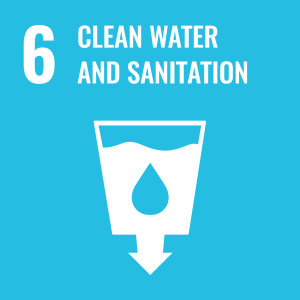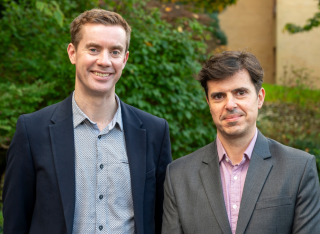
Leading UK water conservation through innovative technology and behaviour change
Start date
September 2024End date
September 2025Overview
The UK is facing an unprecedented water crisis, with a staggering deficit of 5 billion litres per day (England) predicted by 2050. As domestic supply cuts and soaring prices become a reality, the University of Surrey is stepping up to confront this existential threat head-on with a new ESRC IAA funded project aimed at revolutionising how we manage water consumption in our homes.
The project builds on previous successful research led by Dr Pablo Pereira-Doel, which focused on understanding and mitigating water consumption through in-shower technology. This work showed that demand-side water use can be reduced, without impacting consumer experience, through technology-assisted behaviour change.
Building on existing collaborative networks, the team are undertaking three interlinked work packages that expand Surrey's test-bed activities beyond showering (e.g., toilets, kitchens) to cover 'whole-home' water usage, and they are engaging with water stakeholders to understand industry/consumer needs and collectively develop national solutions.
Related sustainable development goals

Team

Principal Investigator
Professor Benjamin Gardner
Professor in Psychology; MSc Behaviour Change Programme Lead
Biography
Prof Benjamin Gardner is recognised internationally as an expert researcher, lecturer and public speaker in the psychology of habitual behaviour. Over 15+ years of behavioural science research, he has published over 180 research papers and book chapters, mostly exploring how the concept of 'habit' can be drawn on to understand and change everyday human behaviours, with especial focus on health behaviours. He has given talks and hosted seminars and workshops with academic, practitioner, commercial and public audiences across the UK and Europe, and in Australia, Canada, Singapore, and USA. As of September 2025, his work has been cited over 18,000 times, including in more than 200 policy documents.
Prof Gardner is founder and co-Director of the Habit Application and Theory group, and co-Lead of the European Health Psychology Society Habit Special Interest Group. He holds editorial board positions at Health Psychology Review and Social Science & Medicine, and is a Consultant at British Journal of Health Psychology.
Prof Gardner's research relates to psychological processes that affect all behaviours. Nonetheless, the main behaviours that he has focused on to date have been health (e.g., sedentary behaviour and sitting, physical activity, dietary consumption) and environmentally relevant actions (e.g., water consumption, travel mode choice). He has led funded research projects to develop novel habit-based interventions to reduce sedentary behaviour in office workers and older adults, and contributed habit and behaviour change expertise to funded work (e.g. MRC, NIHR) supporting health promotion among older adults, office workers, parents and children.

Co-Investigator
Dr Pablo Pereira Doel
Human Insight Lab co-director; Fellow at the Institute for Sustainability; Visiting Fellow, Center for Tourism Research at Wakayama University (Japan)
Biography
I am co-director of the Human Insight Lab at Surrey Business School and a Fellow of the Institute for Sustainability at the University of Surrey. My research examines how everyday resource-use behaviours, particularly water use, can be understood, measured, and redesigned to support environmental sustainability. Drawing on behavioural science, environmental psychology, data analytics, and design research, I study the structural and contextual drivers of behaviour using sensor technology and biometric methods (eye-tracking, galvanic skin response, facial-expression analysis) in laboratory, field, and hybrid experiments across real-world settings such as homes, student accommodation, hotels, healthcare facilities, and product-use contexts. Much of my work is co-created with industry and policy partners to translate evidence into practical, measurable impact. I aim to make sustainable behaviour intuitive and rewarding, showing how context redesign and digital innovation can change what people feel and do.
News
BBC News: Public and industry must rethink future water use
Customers and the water industry must work together to reduce water use, an academic study has found.
Experts from the University of Surrey's Institute for Sustainability have been working with more than 100 professionals, including some from nine UK water companies.
Creating Impact
The project is delivering on three main objectives:
- To enhance the University's Living Lab infrastructure, creating an agile testbed for innovative water conservation technologies develop to tackle these and future, emergent priorities.
- To engage stakeholders in co-producing a bid for the multimillion-pound OFWAT 2025 Water Efficiency Fund, to implement a new, nationwide technology-assisted behaviour change programme to save water, protecting UK domestic supply.
- To collaboratively develop a White Paper outlining a national strategy for reducing domestic water consumption and co-create a domestic water impact agenda document, to drive collaborative activities in this area.
The urgency of this initiative cannot be overstated. With the threat of water shortages looming, the University of Surrey is committed to leading the charge in finding sustainable solutions.
"With ESRC IAA funding, we will expand our infrastructure and impact activities to apply our behaviour led approach more comprehensively, and so lead the whole-home water conservation field. We will engage with industry stakeholders to create pathways to impact by understanding needs and promoting easy, unobtrusive behaviour changes to save UK consumers money and protect the water supply."
Dr Benjamin Gardner






